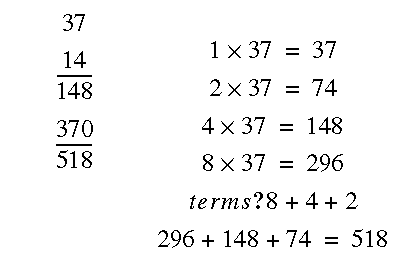Zero
Babylonians 600BC :
Zero may have been used as a place holder to prevent confusion between
numbers like 3608 36 8 etc. Also they had a minus sign to represent a
number less than some value. Not a negative number but a minus
sign.
As a number zero's origin is really quite blurry. Greeks didn't need
it, they didn't have a place holder number system and they were
geometers.
What is certain is that by around 650AD the use of zero as a number
came into Indian mathematics.
With
respect to India, it is fair to say the numerals and number system was
born which have evolved into the highly sophisticated ones we use
today.
Around 600 AD, zero was
regarded as a number and its operation in
arithmetic was described, it
was arithmetic that made zero a number.
e.g.) a number multiplied by zero is zero, and a number remains the
same when zero is subtracted from it.
Division was a little more difficult. 800AD
e.g. A number remains
unchanged when divided by zero.
1100 AD it gets a little
closer.
e.g. A quantity divided
by zero becomes a fraction the denominator of which is zero. This
fraction is termed an infinite quantity.
The difficulties are apparent. The notion of Zero was a problem when
division was a concern. "Notion not notation"
Indian mathematics was transmitted to the
Islamic and Arabic
mathematicians 700-800AD.
al-Khwarizmi wrote on the Hindu Art of Reckoning which describes
the
Indian place-value system of numerals based on 1, 2, 3, 4, 5, 6, 7, 8,
9, and 0.
(Muslim mathematician, astronomer, astrologer and geographer of Persian
origin.)
Quiz 3: What is a common term
named after al-Khwarizmi?
Similar ideas spread to
China during the same period.
Reckoning is much closer to the ways machines multiply than we do.
Fibonacci was one of the
main people to bring these new ideas about the number system to Europe 1200. In a book about
the abacus and computing with it.
The Indo-Arabic numbers took a long time to become popular, eventually
through their more convenient use in commerce. (Ocams razer)
Aside: 1 January 2000 celebrated the passing of only 1999 years since
when the calendar was set up no year zero was specified.
Zero is the only real number that is not positive or negative.
People don't seem to be
too bothered with 0!, the number of permutations of 0 elements is 1.
a0 is always
equal to 1 (follows from the limit) 00 is however often
indeterminate.

